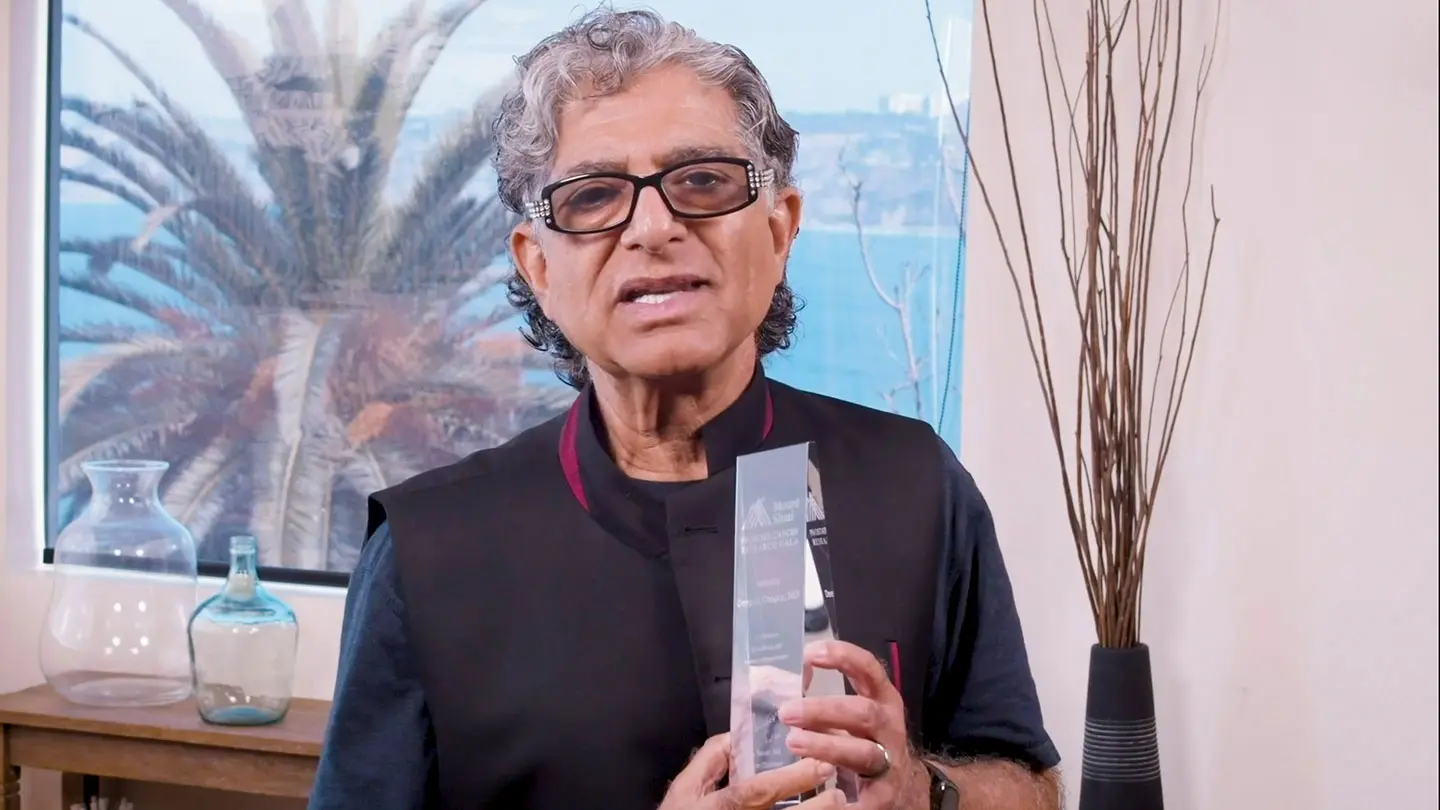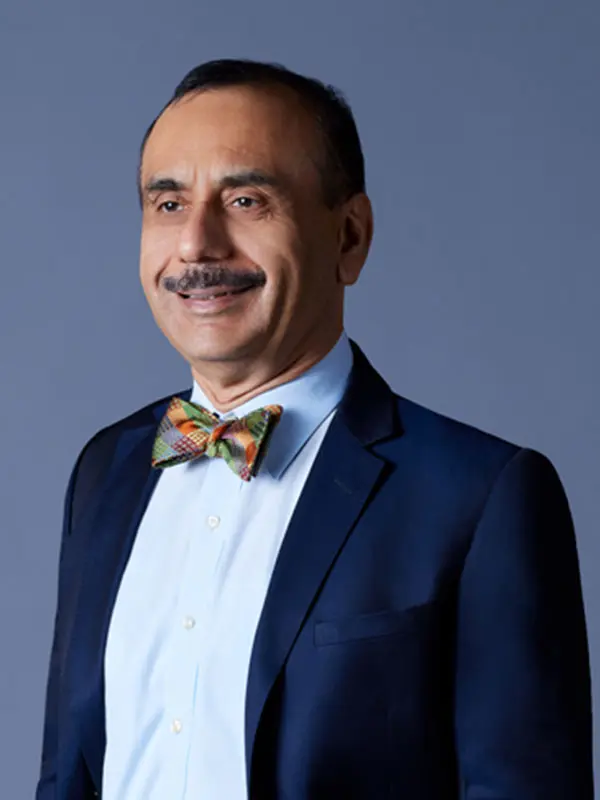The Prostate Cancer Research Stay at Home Gala, a virtual event held November 18, honored best-selling author Deepak Chopra, MD, a pioneer in integrative medicine, Founder, The Chopra Foundation and Chopra Global, and Clinical Professor of Medicine at the University of California San Diego, and William K. Oh, MD, Chief, Division of Hematology and Medical Oncology, Deputy Director, The Tisch Cancer Institute, Professor of Medicine and Urology, and Ezra M. Greenspan, MD Professor in Clinical Cancer Therapeutics at the Icahn School of Medicine at Mount Sinai.
During the event, Ash Tewari, MBBS, MCh, Professor and Chair, Milton and Carroll Petrie Department of Urology, and the Kyung Hyun Kim, MD, System Chair in Urology, shared some highlights of the Department’s research in prostate cancer, beginning with the impact of the COVID-19 pandemic.
“The coronavirus has exposed health inequities that Mount Sinai is dedicated to solving. We don’t yet know all the reasons why prostate cancer is more lethal in Black men. Nor do we understand the relationship of race and ethnicity to COVID-19 severity,” said Dr. Tewari. “But we do know that if you’re Black and have prostate cancer, avoiding COVID-19 infection is even more important.”
The Department is seeking an understanding of racial disparities in prostate cancer diagnosis and outcomes. One area of research is whether emphasizing early detection and sustained access to high quality of care reduce the disproportionate effects of prostate cancer, including increased mortality, for Black men.
This research is one part of a comprehensive investigation in prostate cancer causes and treatments. This important translational research is made possible thanks to the incredible patient base built by the Deane Prostate Health Center over the years.
For example, the Department is addressing inflammation in prostate cancer by looking at the mind-body connection. Studies will look at how incorporating such activities as yoga and meditation may influence the inflammatory response and disease progression.
“As we continue to offer directed, individualized care, we are investigating harnessing the immune system to treat and cure prostate cancer,” said Dr. Tewari. “We are working to identify biomarkers that will allow us to predict which men will respond best to immunotherapies. This will also help us create a more personalized approach to treating prostate cancer.”
Informing all of this research will be an exhaustive “atlas” of prostate cancer that the Department is developing, which is using genomics, bioinformatics, immunology, imaging, and other methods, to map out dynamic changes in tumors and their microenvironments.

Deepak Chopra, MD, a pioneer in integrative medicine, Founder, The Chopra Foundation and Chopra Global, and Clinical Professor of Medicine at the University of California San Diego
“The coronavirus has exposed health inequities that Mount Sinai is dedicated to solving. We don’t yet know all the reasons why prostate cancer is more lethal in Black men. Nor do we understand the relationship of race and ethnicity to COVID-19 severity,” said Dr. Tewari. “But we do know that if you’re Black and have prostate cancer, avoiding COVID-19 infection is even more important.”
The Department is seeking an understanding of racial disparities in prostate cancer diagnosis and outcomes. One area of research is whether emphasizing early detection and sustained access to high quality of care reduce the disproportionate effects of prostate cancer, including increased mortality, for Black men.
This research is one part of a comprehensive investigation into prostate cancer causes and treatments. This important translational research is possible thanks to the incredible patient base built by the Deane Prostate Health Center over the years.
For example, the Department is addressing inflammation in prostate cancer by looking at the mind-body connection. Studies will look at how incorporating such activities as yoga and meditation may influence the inflammatory response and disease progression.
"The coronavirus has exposed health inequities that Mount Sinai is dedicated to solving."
Ash Tewari, MBBS, MCh
“As we continue to offer directed, individualized care, we are investigating harnessing the immune system to treat and cure prostate cancer,” said Dr. Tewari. “We are working to identify biomarkers that will allow us to predict which men will respond best to immunotherapies. This will also help us create a more personalized approach to treating prostate cancer.”
Informing all of this research will be an exhaustive “atlas” of prostate cancer that the Department is developing, which is using genomics, bioinformatics, immunology, imaging, and other methods to map out dynamic changes in tumors and their microenvironments.
Featured

Ash Tewari, MBBS, MCh, FRCS (Hon.)
Professor and System Chair, Milton and Carroll Petrie Department of Urology, Director of the Center of Excellence for Prostate Cancer at The Tisch Cancer Institute at the Icahn School of Medicine at Mount Sinai, and Surgeon-in-Chief of the Tisch Cancer Hospital at The Mount Sinai Hospital